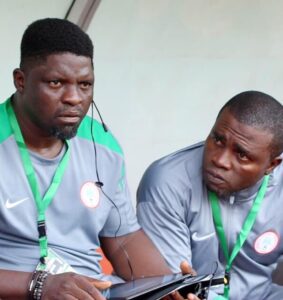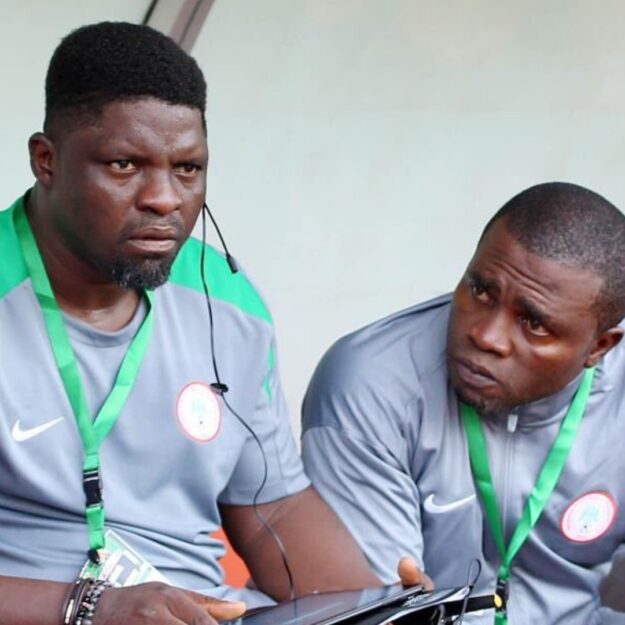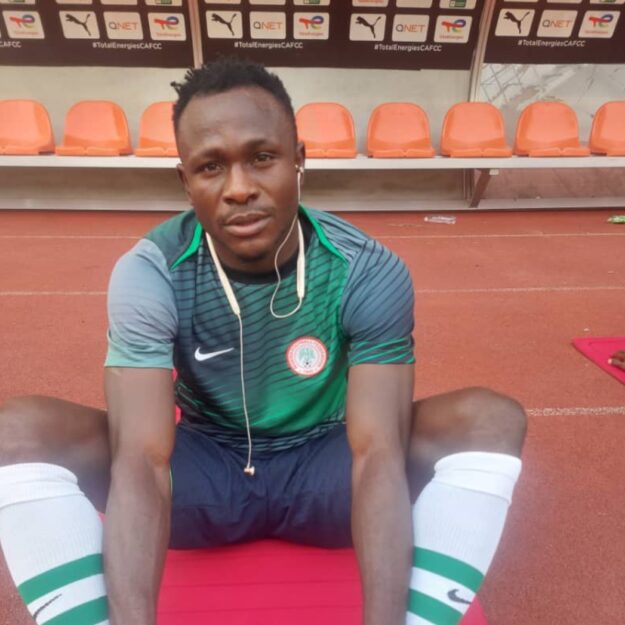
“Research suggests that the motivations behind male and female corruption differ. Men are more likely to engage in corruption for monetary gain, whereas women are more likely to do so for social gain, such as to benefit their family or community. Ultimately, it appears that gender is not the primary factor driving corruption but rather cultural, social, and economic factors. While there is no conclusive evidence to support the notion that women are less corrupt than men, there is a prevailing perception that men are more likely to engage in corrupt practices than women.”
As someone who has always been an advocate for women’s rights and equality, I feel increasingly exasperated with the recent wave of corruption allegations that disproportionately target women in positions of power. It is a deeply concerning trend that is not only threatening to erode the progress that women have made in the fight against corruption but also undermining the public’s trust in female leaders. It is especially perplexing to see women, who have often been viewed as the epitome of integrity and honesty, being implicated in these scandals. At a time when the world is looking up to women to lead the fight against corruption, it is disheartening to see them being embroiled in such controversies. I had hoped that women would be different from men, who have traditionally been known for their involvement in corrupt practices. However, the recent corruption allegations made against two female ministers in the Tinubu administration have led me to ponder whether there is a gender-based susceptibility to corruption. Are there any credible reports or studies that support this notion? This issue is of utmost importance, as it has significant implications for the fairness and equality of our society. Hence, a thorough investigation of any underlying factors is necessary to understand better and address this issue.
The question of whether there is a gender disparity in corruption has long been a topic of discussion among experts and researchers. In 2019, during an appearance on Arise TV, Mr. Peter Obi, a Nigerian businessman and politician, put forth an argument that Nigerian women are less corrupt than their male counterparts. He praised women for their attentiveness and care when handling issues and asserted that they are less prone to corruption. Mr. Obi cited his own experiences as chairman of a bank, where women occupied vital positions and drove success. He further explained that women exhibit a tremendous passion for education and supporting small businesses, as they are often responsible for managing their households. Mr. Obi also referenced Ngozi Okonjo-Iweala, who had advocated for saving money during her tenure in government as finance minister and was later accused of embezzlement. Mr. Obi believed that if her advice had been heeded, Nigeria would not have faced its current challenges. However, when asked about the solution to Nigeria’s problems, Mr. Obi pointed to the need for strong leadership that can effectively address corruption. While Mr. Obi’s assessment of women may hold some merit, it is essential to note that the issue of corruption is complex and multifaceted. Various studies have been conducted on the gender disparity in corruption. While some suggest that women may be less corrupt than men, others point to a lack of opportunities for women to engage in corruption due to societal and cultural norms that limit their access to power and resources. Ultimately, the question of whether Mr. Obi’s assessment of women is accurate requires further investigation and analysis. Nonetheless, the need for strong leadership that can effectively address corruption remains a pressing issue in Nigeria that requires the collective efforts of individuals, institutions, and the government.
Throughout Nigeria’s various political regimes, women have often been accused of corruption. In 2007, Reuters News reported that a Nigerian woman was sentenced to three years in a British jail for laundering 1.4 million pounds in public funds stolen by a state governor. The Metropolitan Police’s Proceeds of Corruption Unit achieved its first conviction by investigating the laundering of criminal funds in London by corrupt overseas officials. Joyce Oyebanjo was discovered to have used several bank accounts in Britain to launder public funds looted from Plateau state by Governor Joshua Dariye. All of Oyebanjo’s and Dariye’s assets were seized and subject to a forfeiture proceeding so that the British government could return the money to Nigeria. In 2009, the Voice of America (VOA) reported that the daughter of former President Olusegun Obasanjo, who was also the chairwoman of the Senate Health Committee, was incarcerated on embezzlement charges after turning herself in to authorities in Abuja. Iyabo Obasanjo-Bello was accused of taking about $85,000 in unspent funds from a $2.5 million government health budget. The former minister of health, in collaboration with some bureaucrats in the ministry of health, worked with the committee on health, of which Iyabo Obasanjo was the chairperson, to collect some of this money to share it. They later claim that the money was meant for training. Ms. Bello and nine other officials were later declared innocent after a probe.
In 2015, following the ascent of the Buhari administration, several allegations of extensive corruption were made against Diezani Alison-Madueke, who had served as the Minister of Petroleum Resources under President Goodluck Jonathan. It was alleged that she had utilized N10 billion in state funds to charter, operate, and maintain a jet for her personal use. Prior to this accusation, the former Governor of the Central Bank of Nigeria, Sanusi Lamido Sanusi, had accused Alison-Madueke of embezzling a staggering $20 billion. It is widely believed that Alison-Madueke fled the country shortly after the Jonathan administration ended in May 2015, apprehensive of prosecution by the Buhari government. However, Ms. Madueke maintains that she urgently flew to the United Kingdom before the new government took office to receive medical attention for her declining health. It is important to note that Madueke has been receiving treatment for cancer since at least 2014. Her case remains unresolved to date, while the Nigerian government continues to work with the UK government to extradite her to face charges of corruption. Alison-Madueke’s case is considered to be one of the most significant corruption scandals in Nigeria’s history. In another instance, Stella Oduah, who served as the Minister of Aviation during Goodluck Jonathan’s administration, was accused of inflating the cost of purchasing two bulletproof BMW cars at N255 million. Despite this accusation, Justice Mohammed Yunusa issued an order restraining the Economic and Financial Crimes Commission (EFCC) from arresting Oduah. Additionally, a Federal High Court in Lagos issued an order preventing the attorney general of the federation, the inspector general of police, and the Independent Corrupt Practices and Other Related Offences Commission from summoning Oduah for questioning. This development raised questions about whether influential individuals in Nigeria can be held accountable for their actions, especially when they are linked to corruption scandals.
There were reports of alleged involvement of Marilyn Ogar, a former spokesperson for the Department of State Security, in a bribery scandal with the Petroleum Products Marketing Company. The alleged bribes were said to have occurred shortly before the Osun state governorship elections. Additionally, there was controversy surrounding a statement made by Ms. Ogar, in which she claimed that the All-Progressives Congress (APC) had offered a bribe of N14 million to two high-ranking SSS officials in an attempt to influence the election. This statement generated significant criticism and raised questions about the integrity of the election process. Ngozi Okonjo-Iweala, who served as finance minister during President Goodluck Jonathan’s administration, was also accused of embezzling $1 billion. Okonjo-Iweala refuted the allegations and dismissed rumors about her family’s alleged plans to construct a multi-million-dollar hospital in Abuja. In the past, Toyin Saraki, the wife of Bukola Saraki, the Senate president and former governor of Kwara state, was asked to explain suspicious inflows of funds into companies she had interests in during her husband’s tenure as governor. She agreed to accept the invitation and went to the EFCC’s headquarters in Abuja with a group of supporters. However, upon arrival, chaos ensued as the crowd forcefully entered the offices of the EFCC’s Director of Operations, claiming that the agency was biased. Despite this commotion, a senior agent at the EFCC claimed the agency had concrete evidence of corruption against the Senate president’s wife.
The Economic and Financial Crimes Commission (EFCC) also leveled allegations of fraudulent activity against Zainab Dakingari, the wife of former Kebbi state governor Saidu Dakingari. Dakingari is also the daughter of late former President Umaru Yar’ Adua. The EFCC began investigating the source of a significant amount of money that reportedly flowed into companies controlled by Dakingari during her tenure as Kebbi state’s “first lady.” According to the EFCC, this fraud amounts to a staggering N2 billion. As of now, the investigation is ongoing, and no further details have been made public. In the year 2018, a major scandal erupted in Nigeria’s political circles when Kemi Adeosun, the former Minister of Finance, submitted a forged exemption certificate from the National Youth Service Corps (NYSC) along with other documents to the Directorate of State Services and the Senate in 2015 to obtain ministerial clearance. This certificate was meant to prove that she had completed the mandatory one-year national youth service scheme, which is required for all Nigerian graduates below the age of 30 years. However, the media later revealed that Mrs. Adeosun did not participate in the scheme despite graduating from a British university in 1989. Instead of participating in the NYSC scheme, Mrs. Adeosun fabricated an exemption certificate years after her graduation. She used this certificate to secure high-profile jobs in Nigeria’s private sector before returning to Nigeria in 2002. Even then, she failed to participate in the NYSC scheme, which had become a prerequisite for many public and private sector jobs in Nigeria. In 2009, Mrs. Adeosun procured another fake exemption certificate, likely due to concerns about potential repercussions for skipping the mandatory program. She used this certificate to gain employment in the Ogun State government before she was appointed as Nigeria’s Minister of Finance in 2015. Following public outrage, Mrs. Adeosun resigned from her position as Minister of Finance, maintaining that she was unaware of the fraudulent nature of the certificate.
It has only been eight months since President Bola Tinubu appointed a group of ministers. Unfortunately, within this brief period, two female ministers have already been accused of misusing funds. There are now calls from concerned Nigerians for President Tinubu to arrest and prosecute Betta Edu, the embattled Minister of Humanitarian Affairs, over alleged money laundering. According to The PUNCH Newspaper, Edu faced heavy criticism after a memo surfaced online in which she instructed the Accountant-General of the Federation, Oluwatoyin Madein, to transfer N585 million to a private account owned by Oniyelu Bridget. The ministry claimed Bridget served as the Project Accountant for Grants for Vulnerable Groups. The leaked memo, dated December 20, 2023, contained instructions for the payment of the N585,198 million grant intended to support vulnerable groups in Akwa Ibom, Cross River, Ogun, and Lagos states, which was instead made directly into Bridget’s account. Denying element of corruption, the Special Assistant on Media and Publicity to the Minister, Rasheed Zubair, claimed that the payment followed due process and that the grant was paid to Bridget’s account because she currently serves as the Project Accountant for Grants for Vulnerable Groups. The news caused a stir on social media as Nigerians questioned why a large sum of government funds would be paid into an individual’s account, considering that public sector financial regulations prohibit such payments.
President Bola Ahmed Tinubu recently suspended Halima Shehu, who served as the National Coordinator of the National Social Investment Program Agency under Edu. The suspension came over allegations of financial misappropriation. After the suspension, Dr. Akindele Egbuwalo, who currently serves as the National N-POWER Program Manager, was appointed to serve as the Coordinator pending the government’s conclusion of Shehu’s investigation. It’s worth noting that Shehu was confirmed by the Senate only three months prior to her suspension. Prior to joining the National Social Investment Program Agency, she worked with the Federal Ministry of Humanitarian Affairs, Disaster Management, and Social Development between 2017 and 2022. The suspension of Shehu and the subsequent investigation are intended to ensure that the agency remains accountable and transparent in its efforts to achieve these goals. The alleged involvement of Betta Edu and Halima Shehu in corrupt practices has raised concerns about the integrity of President Tinubu’s administration. Despite being barely eight months into the administration, these two women have shown Nigerians that they can misappropriate funds better than the men. While it remains unclear whether these allegations are true or not, the question on everyone’s lips is whether these women will be prosecuted if found guilty. However, until any concrete evidence is presented, it’s essential to treat these allegations as mere speculations and wait for the appropriate authorities to conduct investigations into the matter.
For a long time, I have held the belief that women are less prone to engage in corrupt activities than men. This belief is primarily driven by the argument that women are less likely to take bribes or put personal gain ahead of the public good. However, upon closer examination, I have come to realize that the relationship between gender and corruption is more complex than this stereotype suggests. Studies show that while there are some differences in the levels and types of corruption between men and women, it is not accurate to make a blanket statement that women are inherently less corrupt than men. Some studies suggest that women are also more likely to engage in grand corruption, which involves high-level officials embezzling large sums of money. The recent corruption cases against Nigerian women have shown that women in positions of power are not exempted from engaging in corrupt practices. Despite the traditionally male-dominated nature of corruption in Nigeria, women have been found to be just as active and capable of engaging in corrupt practices as their male counterparts. As a Nigerian citizen, I am deeply concerned about the recent cases of corruption leveled against some of our country’s most prominent female figures. It’s disheartening to see women like Betta Edu and Halima Shehu, who were once respected and trusted members of our society, have now become clear examples of how corruption can permeate all genders. What’s particularly alarming is that our nation has already lost faith in men due to rampant corruption, and now we’re losing faith in women as well. It’s difficult to imagine where we’ll turn if we can’t trust our own sisters, aunties, and mothers. The impact of corruption on our society is far-reaching and devastating, affecting not only the economy but also people’s lives. Corruption in Nigeria has been a significant issue for many years, and it’s essential to recognize the impact it has on our society. It’s high time that we took action to address this problem and hold those who engaged in corrupt practices accountable for their actions. We need to create a society where honesty and integrity are valued and rewarded, regardless of gender. Only then can we build a Nigeria that we can all be proud of.
The news about female politicians in Nigeria is not always positive. However, it’s essential to recognize that not all Nigerian women are corrupt. There are many exceptional women with unique and positive personalities. From entrepreneurs to artists, activists to athletes, Nigerian women are making significant contributions to their communities and beyond. They are breaking barriers, challenging stereotypes, and inspiring others to pursue their dreams. The following Nigerian women are among those who are making a significant impact in the world. For instance, Ngozi Okonjo-Iweala, the current Director-General of the World Trade Organization, is a role model for women around the world. As the first woman of color to hold this prestigious position, Okonjo-Iweala’s accomplishments are a source of hope for girls everywhere. An accomplished economist with experience at the World Bank and as Nigeria’s Finance Minister, she has made her country proud. Chimamanda Ngozi Adichie is a highly celebrated Nigerian author, known for her exceptional literary works and unwavering commitment to promoting feminism and empowerment of young girls. Her works have earned her multiple accolades and recognition in different parts of the world, cementing her status as a leading voice in contemporary African literature. Through her writing and public speaking engagements, she has also become a prominent advocate for social justice, human rights, and political accountability. Her exceptional talent and inspiring advocacy have made her a role model to many, both within and beyond the African continent. Folorunsho Alakija is a Nigerian billionaire businesswoman who has become a source of inspiration for women worldwide. Her impressive career has earned her a spot-on Forbes’ list of the world’s 100 most powerful women. Alakija’s wealth comes from a diverse portfolio of businesses that includes fashion, oil, real estate, and printing. She started her career as a secretary in a Nigerian merchant bank in the 1970s and then went on to establish her own fashion label, which became a huge success. Later, she ventured into the oil business and acquired a lucrative oil block that yielded significant returns. Today, Alakija’s philanthropic efforts also reflect her dedication to empowering women, especially in Africa. Sade Adu is a talented singer and songwriter of Nigerian origin who has achieved remarkable success in the British music industry. She is widely recognized as one of the most influential musicians of her time, and her work has earned her numerous awards and accolades. In 2002, Sade was awarded the Officer of the Order of the British Empire for her invaluable contributions to music. Her unique style, soulful voice, and powerful lyrics have made her an icon of contemporary music. Her music continues to inspire people around the world.
Chioma Ajunwa is a prominent figure in the world of sports, particularly in athletics, and is considered to be unmatched in Nigeria. Despite facing several obstacles in her career, she rose to fame by becoming the first Nigerian athlete to win an Olympic gold medal in 1996, a record that still stands today. Prior to her stellar performance in the long jump event, Chioma also played football for the Nigerian women’s national team, known as the ‘Falcons.’ Genevieve Nnaji is a remarkable woman in the Nigerian film industry who has contributed significantly to putting Nigeria on the global map. She is a recipient of the Nigerian National Awards (OFR), and her movie ‘Lion Heart’ made history by becoming the first Nollywood movie to be submitted for the prestigious Oscars Award. Asisat Oshoala is undoubtedly the most significant African player in the world of football. As a star player for FC Barcelona Femeni, she has been crowned Africa’s female player of the year four times, earning her the title of Lionel Messi of female football in Africa. It comes as no surprise that she plays for the same football club as the Argentine superstar. Blessing Okagbare is a celebrated Nigerian athlete who has made a name for herself on the world stage in track and field events. As a long jumper and sprinter, she has won Olympic and World Championship medals in the long jump and a world medal in the 200 meters. Additionally, Okagbare holds the Guinness world record for the most appearances in the athletic Diamond League, surpassing even Usain Bolt. Tiwa Savage is a talented Nigerian singer who has gained international recognition for her music. Having previously worked as a backup singer for Mary J. Blige and George Michael, she has since become one of the most prominent female African artists. She is a multiple award winner in the music industry. Her work has even been featured in high-profile projects such as the ‘Lion King’ and the recent Hollywood film Coming to America 2.
Oluwatobiloba Ayomide is a talented sprinter and 100-meter hurdler who proudly represents Nigeria in track and field events. Born on April 23, 1997, in Ogun State’s Ijebu-Ode, Tobi’s gift for athletics was discovered when she won a 100m sprint at an inter-house sports competition in her hometown at the age of 15. Since then, her career has been nothing short of remarkable, earning her a silver medal in the 200m at the 2013 African Youth Championships and a gold medal at the African U20 Championships in Ethiopia in 2015. In 2015, she also triumphed at the All-African Games in Brazzaville, Congo, and has since become a world record holder in the 100-meter hurdles with a time of 12.12 seconds, which she achieved in the 2022 women’s 100-meter hurdles semifinal in Eugene, Oregon. Tobi’s impressive accomplishments include being the reigning Commonwealth and African champion in the 100 m hurdles and holding the meet record in both competitions. She made history as the first Nigerian world champion and world record holder in an athletics event when she won the 2022 World Championships 100 m hurdles gold medal, setting the current world record of 12.12 seconds in the semifinal, followed up by 12.06 seconds in the final. Additionally, Tobi has won back-to-back Commonwealth and African titles in 2018 and 2022 in the 100 m hurdles, as well as being a two-time African Games champion in the event. Moreover, she is the current Diamond League champion in the 100-meter hurdles, winning the final in 12.33 seconds and achieving a winning streak in 2021, 2022, and 2023. Other notable Nigerian creatives include Amina Mohammed, Kaffy Dancer, DJ Switch, and Asa, to name a few. It’s crucial to recognize and celebrate the diversity and strength of Nigerian women and to reject any harmful generalizations or prejudices that may exist.
An intriguing question to consider is whether there is a difference in corrupt behavior between men and women. While some argue that corruption is a gender-based phenomenon, others refute this claim. However, empirical evidence suggests that gender does have a significant impact on corruption. For instance, studies have shown that women are less likely to engage in corrupt activities than men. Additionally, countries with higher levels of gender equality tend to have lower levels of corruption. This suggests that promoting gender equality can be an effective way of reducing corruption. Nonetheless, it is essential to note that corruption is a complex issue that is influenced by various factors, including social, economic, and political variables. Therefore, to address corruption effectively, a multifaceted approach that considers all these factors is necessary.
Additionally, research suggests that the motivations behind male and female corruption differ. Men are more likely to engage in corruption for monetary gain, whereas women are more likely to do so for social gain, such as to benefit their family or community. Ultimately, it appears that gender is not the primary factor driving corruption but rather cultural, social, and economic factors. While there is no conclusive evidence to support the notion that women are less corrupt than men, there is a prevailing perception that men are more likely to engage in corrupt practices than women.
The informal economic sector is unfortunately plagued by corruption, including the unethical behavior of specific traders. It’s not uncommon to find these individuals, often women, selling contaminated products or providing insufficient quantities of goods to their clients. In addition, women are sometimes unfairly blamed for their male counterparts’ corrupt actions as they are accused of demanding material luxuries beyond their husbands’ legitimate means. Despite any prior disagreements, it is undeniable that women play a vital role in combatting corruption due to their significant contributions to society. As nurturers and caretakers, women serve as the cornerstone of sustainable societal beliefs. In a country like Nigeria, where corruption remains pervasive, there is much to be gained from women dedicating themselves to instilling positive values in children through leading by example and providing exemplary guidance. This approach would significantly bolster the effectiveness of ICPC’s intervention in Nigeria’s educational sector, specifically the National Values Curriculum aimed at the Basic and Post-Basic levels of education. When women unite to take a stand against corruption in society, they can make a significant impact on the anti-corruption crusade. By demanding accountability at every level of governance, they can bring about change in the system. Throughout history, there have been Nigerian women who, due to their sheer determination, brought significant changes in the socio-political landscape. Some examples include the women of Aba during the colonial era, as well as trailblazers like Olufunmilayo Ransome Kuti, Margaret Ekpo, Kudirat Abiola, and Ameyo Stella Adadevoh.
Civil society organizations serve as an effective means to drive social change. The ICPC oversees the efforts of non-governmental and civil society organizations dedicated to combating corruption through its National Anti-Corruption Coalition. It is encouraging to see that women lead a significant number of these organizations. These NGOs can play a vital role in advocating for inclusivity in political structures. Additionally, they can provide training to women at the grassroots level to enable them to participate in the budgetary process at the local level, from planning to implementation, reporting, and oversight. This will help ensure that the budget accurately reflects the needs of the community and is executed accordingly. There is still much work to be done to achieve gender balance and advance women’s rights. Genuine empowerment for women can only come from understanding the complex relationship between corruption and gender equality and recognizing that efforts to promote women’s rights must also include strategies to fight corruption. As we celebrate womanhood every year, we consider this as another opportunity to unite Nigerian women towards a common goal. By working together to fight corruption, we can accelerate progress towards achieving gender balance. It’s important to note that while there may be differences in the levels and types of corruption between genders, making sweeping generalizations is not helpful. To effectively combat corruption, we need to have a nuanced understanding of the underlying factors that drive corrupt behavior, which can vary significantly across individuals and situations.
–
Rev. Ma, S.J, is a Jesuit Catholic priest and PhD candidate in public and social policy at St. Louis University in the state of Missouri, USA.
Related
You may be interested
Arsenal To Offer Kiwior In Swap Deal For Super Eagles Star
Webby - December 28, 2024Arsenal are reportedly considering a January move for AC Milan Nigerian international Samuel Chukwueze as Mikel Arteta eyes cover for…

No Club Is Superior To Us –Inter Milan Striker, Thuram
Webby - December 28, 2024Marcus Thuram has said there’s no team superior to Inter Milan as the Serie A giants strike fear into oppositions.The…

Nigeria Vs Ghana Live Blogging – CHAN 2024 Qualifier, Second Leg
Webby - December 28, 2024Completesports.com’s live blogging of the CHAN 2024 Qualifying match between the Super Eagles B of Nigeria and the Black Galaxies…















![American Pastor, David Wilson Seen Eating The Box Of Woman Who Isn’t His Wife [Video]](https://onlinenigeria.com/wp-content/uploads/2019/10/american-pastor-david-wilson-seen-eating-the-box-of-woman-who-isnt-his-wife-video-150x150.jpg)









